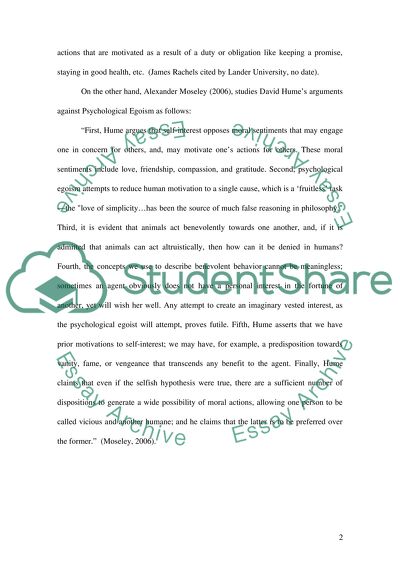Cite this document
(“Ethical and Psychological Egoism Term Paper Example | Topics and Well Written Essays - 1250 words”, n.d.)
Ethical and Psychological Egoism Term Paper Example | Topics and Well Written Essays - 1250 words. Retrieved from https://studentshare.org/psychology/1519333-ethical-and-psychological-egoism-essay
Ethical and Psychological Egoism Term Paper Example | Topics and Well Written Essays - 1250 words. Retrieved from https://studentshare.org/psychology/1519333-ethical-and-psychological-egoism-essay
(Ethical and Psychological Egoism Term Paper Example | Topics and Well Written Essays - 1250 Words)
Ethical and Psychological Egoism Term Paper Example | Topics and Well Written Essays - 1250 Words. https://studentshare.org/psychology/1519333-ethical-and-psychological-egoism-essay.
Ethical and Psychological Egoism Term Paper Example | Topics and Well Written Essays - 1250 Words. https://studentshare.org/psychology/1519333-ethical-and-psychological-egoism-essay.
“Ethical and Psychological Egoism Term Paper Example | Topics and Well Written Essays - 1250 Words”, n.d. https://studentshare.org/psychology/1519333-ethical-and-psychological-egoism-essay.


